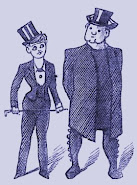
Underground London. Chapter I. All the Year Round. July 20, 1861.
“There are more ways than one of looking at sewers, especially at old London sewers. There is a highly romantic point of view from which they are regarded as accessible, pleasant, and convivial hiding-places for criminals flying from justice, but black and dangerous labyrinths for the innocent stranger. Even now, in these days of new police and information for the people, it would not be difficult to find many thousands who look upon them as secret caverns full of metropolitan banditti. When the shades of evening fall upon the City, mysterious whispered “Open sesames” are heard in imagination near the trap-door side-entrances, and many London Hassaracs or Abdallahs, in laced-boots and velveteen jackets, seem to sink through the pavement into the arms of their faithful comrades. Romances, as full of startling incident as an egg is full of meat, have been built upon this underground foundation, and dramas belonging to the class which are now known as “sensation” pieces, have been placed upon the stage to feed this appetite for the wonderful in connexion with sewers. I have some recollection of a drama of this kind that I saw some years ago at one of the East-end theatres, in which nearly all of the action took place under huge dark arches, and in which virtue was represented in a good strong serviceable shape by an heroic sewer-cleanser. Much was made of floods and flooding, which the flusher, who played the villain of the piece, seemed to have completely under his control; and it was not considered at all singular by the audience, that a dozen men and women should be found walking high and dry under these mysterious arcades, as if in some place of public resort.
Imagination generally loves to run wild about underground London, or the sub-ways of any great city. Take away the catacombs of Paris - the closed, magnified, mysterious catacombs - and the keystone of a mass of French fiction falls to the ground. The dark arches of our own dear river-side Adelphi - familiarised, not to say vulgarised, as they have been by being turned into a thoroughfare to coal-wharves and half-penny steam-boats - are still looked upon as the favourite haunts of the wild tribes of London or City Arabs, whatever these may be.”


















No comments:
Post a Comment